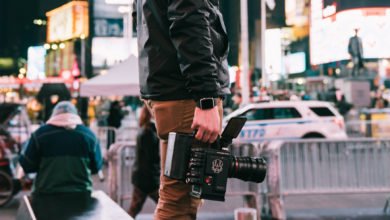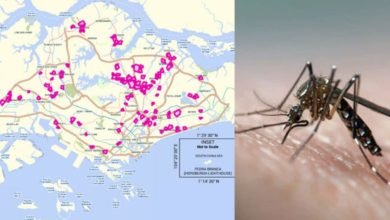What happen when your personal data is not personal anymore?
Protect your personal data.

In this day and age, as long as you know and uses a computer and do your chores online, you are never 100% safe. You leave digital footprints and hints whenever you buy a book online, file your taxes or just looking up your social media to reconnect with old friends. All these activities have something in common, it requires a certain level of your personal data. Before we even know what can happens if compromised, let us know what personal data is.
Personal Data, what it is?
According to Personal Data Protection Commission Singapore (PDPC), personal data are data, regardless true or false, used to identify an individual and what organisation this individual has or likely to have access to. Data such as your full name, your NRIC, your address, your password on social media and even your blood type.
In layman terms, personal data allows me to know who you are, who you are related to and where your work. At surface value, it may seem that it is not that serious, your co-worker knows your name and where you live, so does the chicken rice uncle that has been selling you chicken rice for the past 20 years since you live there, wherever it may be. Yet, the true danger lies in what can be done with your personal data.
Dangers that hide in the bushes
Here comes the scariest thing that can happen to you, if your personal data is compromised. With your personal data, I can gain access to your bank, your social media, your criminal record, other government-related services and even your medical report. Since I am able to access to those, I can alter information on it, I can use it as a leverage to threaten you, or I can use your social media to know your living habit and plot a crime against you. There is far more dangerous than these. With your personal data, I can also pivot and then find out your direct relatives, your next of kin and other people whom you may work closely with.
These are just some of the possible danger that may befall onto you, but it goes deeper than that.
In late May 2019, Mr Tan Kin Lian, an ex-presidential candidate of Singapore, posted his NRIC, date of birth and several other personal data on his Facebook account, to make a point that the paranoia from the danger of personal data breach is overblown. What happened after the publishing of the post proved that it is far more than just paranoia. Within hours, users or trolls as the internet calls it, attempted to log into several online platforms using the basic information. His Singpass account was blocked after six attempted failed login, Mr Tan’s Facebook and other social media platform were also being used to request a change of password, more than 20 requests were made. Mr Tan took down his post as soon as compromises were made.
Fortunately, Mr Tan was also able to rectify his Singpass and social media lockout after some clarification. However, the hidden danger still persists

.Mr Tan’s NRIC cannot be changed, as do all Singaporeans, which means his critical information to identify him is forever online and continues to flow in the network until someone picks up and proceed to commit identity theft, or even other serious crime.
Your social media habit might just put you in danger
Another habit that many modern people have is location check-in. Imagine this scenario, you visit a café that serves fantastic cake or an entertainment locale that you enjoy visiting, you may use the location check-in features on your social media platform. Your friends may see your check-in, got intrigued and decided to visit the café or that entertainment locale. It may seem like a harmless act of social activities, but if your friend or followers can do so, what is preventing from a criminal to track where you frequently visit and cause you harm?

Reported by CBS Chicago, in 2012, a Chicago woman was sexually assaulted while rowing a boat on Lake Michigan, for a fundraiser to fight against cancer. She intended to row the entirety of the lake, 30 miles (roughly 48 kilometres) a day, stop by port town along the way to emphasize the importance of a healthy lifestyle. The perpetrator was said to be following her blog to identify her and pinpoint her location, which he then committed the crime. Fortunately, the woman escaped safely.

If that is not scary, there are YouTubers who also emphasize the safety of your social media posting. 2013, as a social experiment, a YouTuber, Jack Vale Films, conducted a hidden cam prank on random strangers on the street. What Jack did was very simple, he only does a simple search on all the social media posts in his nearby location, read through the posts and approach the person on the street, the results were terrifying. Strangers freaked out when Jack is able to pinpoint their birthday, the place that they recently worked at, where they are located and even their pet lizard’s name. Despite this being a prank and social experiment, it shows the horrifying fact that many of us on social media do not even know about.
What can we do to keep ourselves safe?
We cannot stress the importance of how personal data has become over the years and it will continue to be more important in the future. So, what can we do to keep ourselves safe from such kind of attack? For starter, make sure you don’t use the same password for everything online. Keep a variety of different passwords for different online platforms, make sure you have a number in your password to make it harder to figure out.
When you are handling a physical copy of an NRIC or your passport, please make sure that your NRIC and passport are not being photocopied, or have its picture taken. It is illegal to do so and it is also illegal to possess a picture of NRIC and passport. This also applies to other identity documents such as your driver licence too. If you do need a photocopy of someone else’s identity document, make sure you delete or destroy it after use or you will still be conducting illegal activities.
When you are using your social media to share your memories with friends and families, do not use location check-in feature, also restrict from tagging your friends in the check-in, which might also endanger them from the similar crime. Make sure your privacy setting on your social media platform prevents other random online users to be able to find you easily.
Having said those, personal data are important and possess a certain level of danger if misused. However, if you keep it safe, you will be free from online hacks and criminals from using your identity to commit a crime. You may also visit the PDPC website to get more information on how to protect yourself from such a breach.
Keep safe!
PDPC website: https://www.pdpc.gov.sg/




